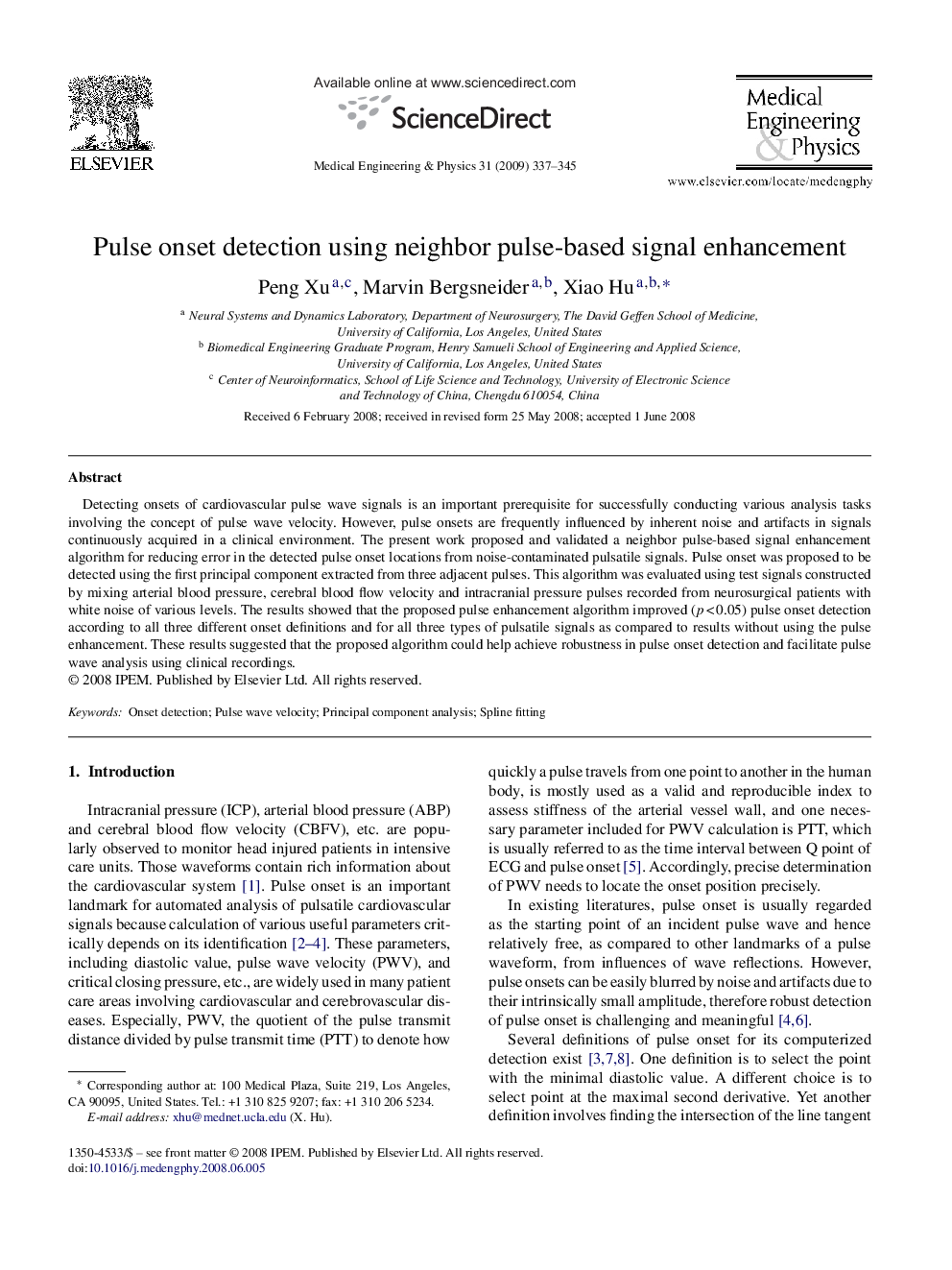| Article ID | Journal | Published Year | Pages | File Type |
|---|---|---|---|---|
| 877082 | Medical Engineering & Physics | 2009 | 9 Pages |
Detecting onsets of cardiovascular pulse wave signals is an important prerequisite for successfully conducting various analysis tasks involving the concept of pulse wave velocity. However, pulse onsets are frequently influenced by inherent noise and artifacts in signals continuously acquired in a clinical environment. The present work proposed and validated a neighbor pulse-based signal enhancement algorithm for reducing error in the detected pulse onset locations from noise-contaminated pulsatile signals. Pulse onset was proposed to be detected using the first principal component extracted from three adjacent pulses. This algorithm was evaluated using test signals constructed by mixing arterial blood pressure, cerebral blood flow velocity and intracranial pressure pulses recorded from neurosurgical patients with white noise of various levels. The results showed that the proposed pulse enhancement algorithm improved (p < 0.05) pulse onset detection according to all three different onset definitions and for all three types of pulsatile signals as compared to results without using the pulse enhancement. These results suggested that the proposed algorithm could help achieve robustness in pulse onset detection and facilitate pulse wave analysis using clinical recordings.
